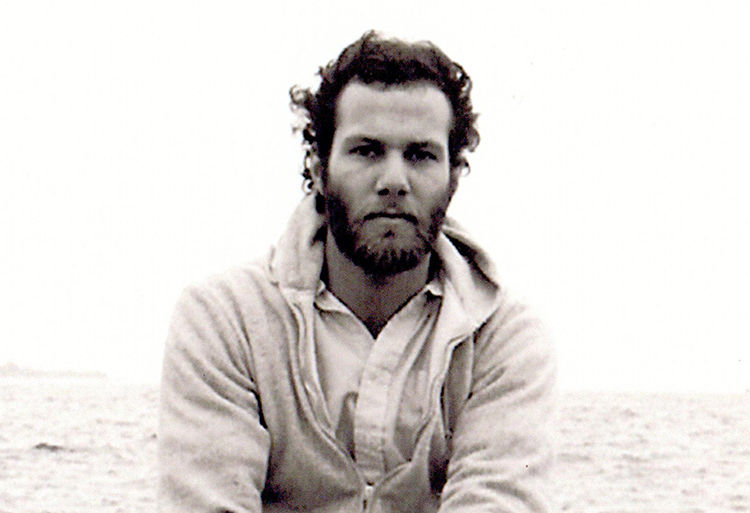【Watch online Dangerous Sex Games (2005)】
Listen to Henri Cole Read Poems from the Paris ReviewArchive
On Poetry

Henri Cole IN NAGS HEAD, NORTH CAROLINA, 1978.
What a pleasure to read around in the Paris Reviewarchive of poems from its pages. I experienced anew the capriciousness of taste and the ardor of individual decades. As the guest editor of the Review’s daily poetry newsletter this week, I chose poems that I consider keepers for my lifetime. All are by poets I read avidly in my twenties and thirties, when I was still unformed and seeking liberators. For me, Baudelaire, Miłosz, Walcott, Gregg, Glück, Wright, and Schuyler are masters in the craft of language. Their words (assembled into art) transport me. Even now, at sixty-five, I am always looking for new liberators. Thank goodness poetry is unkillable. Thank goodness poetry is continually renewed by a rediscovery of the past, by new translations, and by the ache of the young.
Listento Henri Cole read his selections here, and read his commentary below.
“It Is the Rising I Love”by Linda Gregg
This poem is a glorious representation of the mind and soul of Linda Gregg, who died in 2019. When her first book,Too Bright to See, was published, I was in my twenties. With its strange innocence that seemed to have symbolic meanings, it captivated me. I value the neat way her poems communicate the darkness that surrounds mankind. As Joseph Brodsky said, her poems have a “blinding intensity,” like “lightning” or “heartbreak.”
“The Crystal Lithium” by James Schuyler
James Schuyler is my favorite New York School poet. “The Crystal Lithium” is the first of his great, long-lined, long poems. “All six senses are at play, plus those of tone and form,” as James Merrill observed of this shy poet’s wonderful poems, which prove that a “ ‘reverence for life’ doesn’t have to be boring.” Readers of this poem should remember that lithium compounds, known as lithium salts, are used as a psychiatric medication, primarily for bipolar disorder.
“Figs” by Louise Glück
Louise Glück is a marvelous poet. There is so much effortless intelligence in her poems. In just a few lines, she creates a tone with the peculiar power to draw us deeply in. “Figs” is so sharp and clear a narration, so ravishing it seems to declare simultaneously something familiar yet new about the journey of one soul, about the pulse of the earth, and about the ebb and flow of marital love.
“The Sea Is History” by Derek Walcott
Derek Walcott was my teacher. It’s difficult for me to be objective about this magisterial poet. I first read ‘The Sea Is History’ as a young man, in Walcott’s beautiful book The Star-Apple Kingdom, a book with a public dimension that traces Antillean history. Among other things, Walcott is a master of simile, and I love his lamenting seafarer’s tone. For me, his poems reestablish poetry’s responsibility to our common, troubled, historical past.
“Lying in a Hammock at a Friend’s Farm in Pine Island, Minnesota” by James Wright
This free-verse sonnet is, of course, inflected by Rilke’s “Archaic Torso of Apollo.” The explosion of Rilke’s concluding line—“You must change your life”—becomes, in James Wright’s poem, “I have wasted my life.” The simplified beauty of his language and its truth-telling seem to me as enduring as classical Chinese poetry. I’m so grateful for the dark turn this poem makes at its finish. A man’s life is not a thing to sentimentalize.
“My Faithful Mother Tongue” by Czesław Miłosz
Years ago, when I lived in Japan, the country of my birth, I felt most at home in the bookstore aisle of publications in English. For Czesław Miłosz, a great servant of the Muses, the Polish language was his home, but he recognized that it was home, too, to “informers,” to the “debased,” and to the “unreasonable.” Still, Miłosz remained faithful to his mother tongue, for it was also for him a place of incarnation and renewal.
“Epigraph for a Banned Book” by Charles Baudelaire
I grew up reading Richard Howard’s translation of Baudelaire’s Les fleurs du mal, and it remains for me the standard version, even at its campiest, fiercest, and most theatrical. I adore Baudelaire’s breach of decorum, his openness to sorrow and tenderness, and his spleen. A hundred and fifty years later, his poems sound to me so original and contemporary.
Henri Cole was born in Fukuoka, Japan. He has published ten collections of poetry, most recently Blizzard, and a memoir, Orphic Paris. A selected sonnets is forthcoming.
Search
Categories
Latest Posts
NYT Strands hints, answers for May 18
2025-06-26 08:15Trump started a Twitter war with China, and it worked: China's mad
2025-06-26 07:14How to make iPhone's Screen Time actually helpful
2025-06-26 06:57'The Last of Us' Season 2, episode 4: Why Ellie sings 'Take on Me'
2025-06-26 06:06Popular Posts
Skype is finally shutting down
2025-06-26 08:37Amazon challenges Google with smaller, cheaper Echo Show
2025-06-26 08:31Astronomers saw one galaxy impale another. The damage was an eye
2025-06-26 06:42Featured Posts
Amazon Book Sale: Shop early deals now
2025-06-26 08:19'Game of Thrones: The Last Watch' reveals behind
2025-06-26 08:05Viral 'Egg Boy' announces he's donated his GoFundMe money to charity
2025-06-26 07:38Best Apple deal: Save $19 on AirTag 4
2025-06-26 07:23Popular Articles
Best iPad deal: Save $100 on 13
2025-06-26 07:31New 'order' sticker spotted in Instagram Stories
2025-06-26 06:59Skype is finally shutting down
2025-06-26 06:31Newsletter
Subscribe to our newsletter for the latest updates.
Comments (41179)
Sky Information Network
Big-League Bluster
2025-06-26 08:38Steady Information Network
Amazon just teased the future of in
2025-06-26 08:33Progress Information Network
HP adorns its Envy laptops with wood
2025-06-26 08:23Fast Information Network
'Aladdin' flies high at the box office despite mixed reviews
2025-06-26 07:30Unique Information Network
The Story Behind the Home of Forgotten Video Games
2025-06-26 07:15